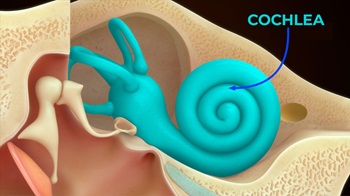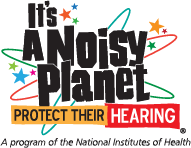Because our ability to hear is so important, scientists are looking for new ways to help protect our hearing from damage caused by noise. According to research using mouse models at the University of Pittsburgh, one way could eventually be to trap excess amounts of a type of zinc that is released in the inner ear after exposure to loud noise.

Zinc is a mineral that is important for healthy hearing. It is found in the cochlea, a snail-shaped part of the inner ear that turns vibrations from sounds into signals that the brain then understands as sound. Parts of the cochlea can be easily and permanently damaged by loud noise.
The researchers from Pitt studied whether zinc plays a role in noise-induced hearing loss by looking at how it works within the mouse cochlea. They found that noise increased levels of zinc in the cochlear cells. They also showed that a compound that absorbed the extra zinc and was given before exposure to noise helped to lessen damage in cochlear cells and prevent hearing loss. These findings could one day lead to the development of a safe medicine to prevent or reduce human hearing loss from loud noise. The research was funded by the National Institute on Deafness and Other Communication Disorders (NIDCD), part of the National Institutes of Health.
Exposure to loud noise is the most common preventable cause of hearing loss. Hearing loss from noise sometimes happens slowly, with symptoms that may not be obvious at first. For example, people with noise-induced hearing loss may have trouble understanding what others are saying in a crowded restaurant or at a party. They may also have tinnitus—hearing a ringing sound in their ears.
While scientists continue to study new ways to prevent and treat hearing loss, you can help to protect your hearing by following these three simple rules:
- Move away from the sound.
- Turn down the volume.
- Wear hearing protectors, such as earplugs or protective earmuffs.
Last Updated Date



